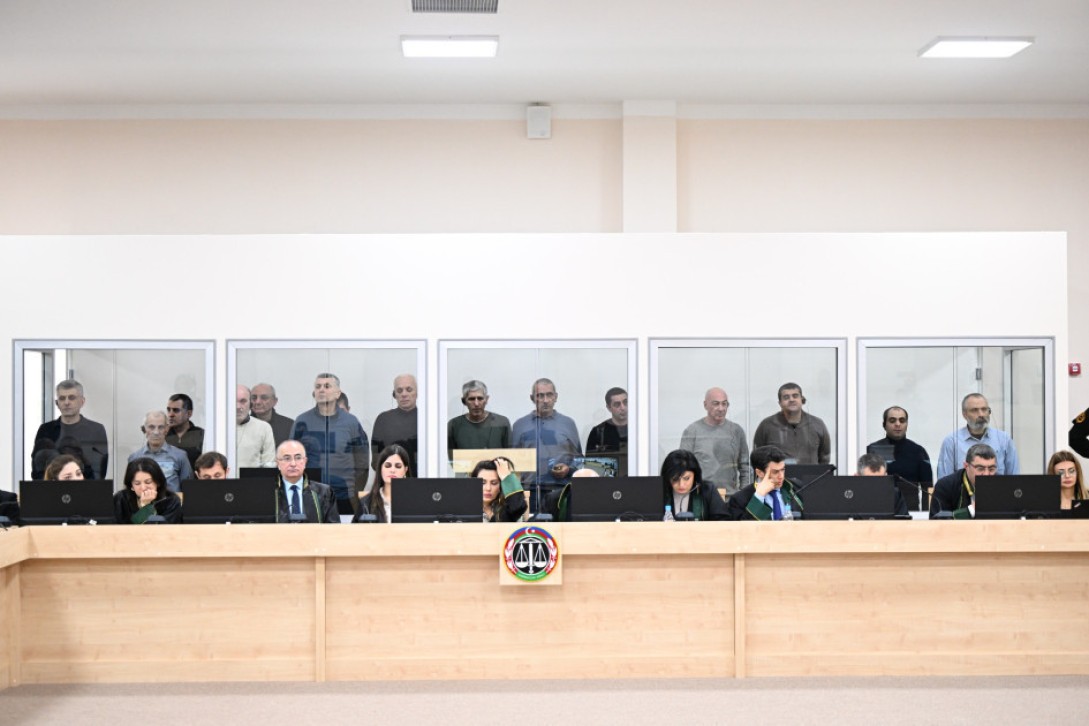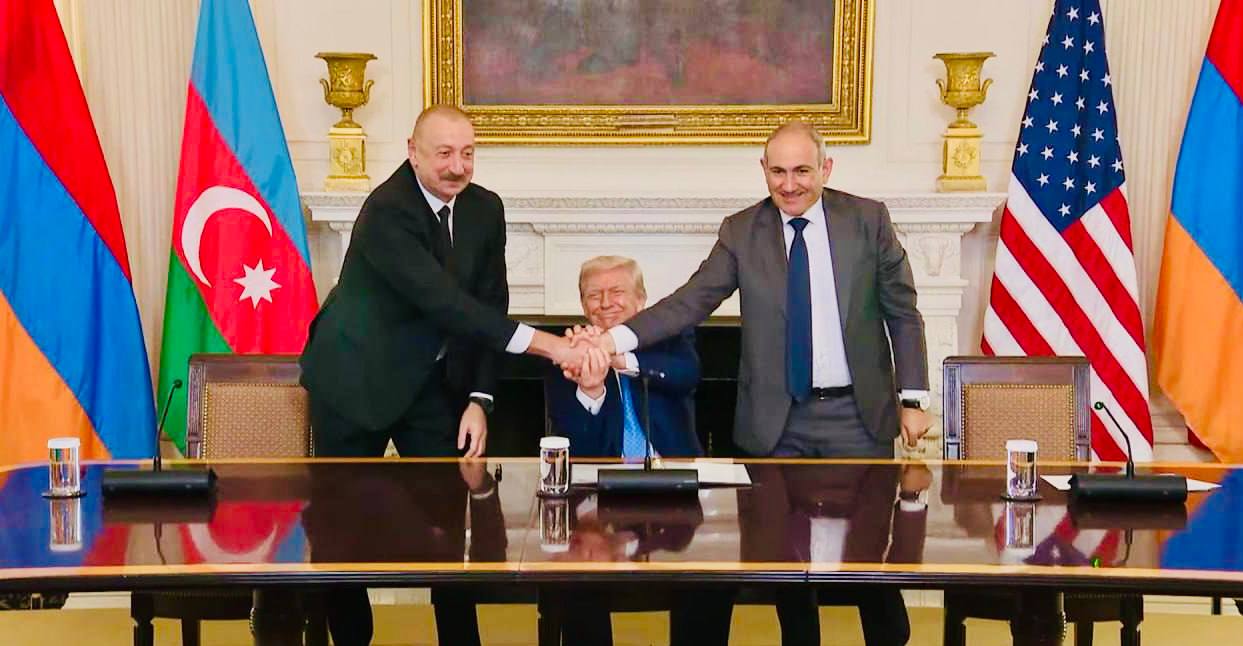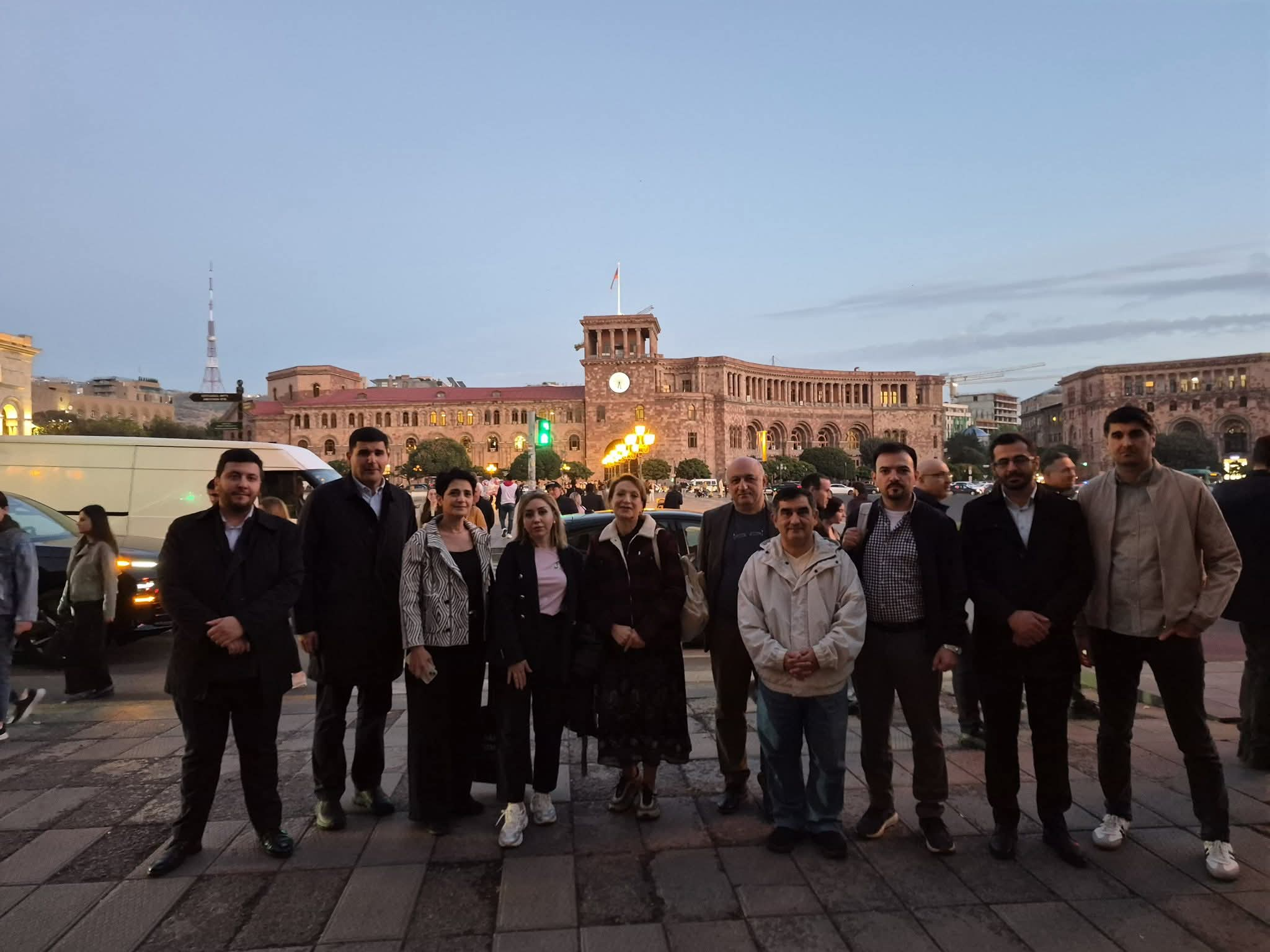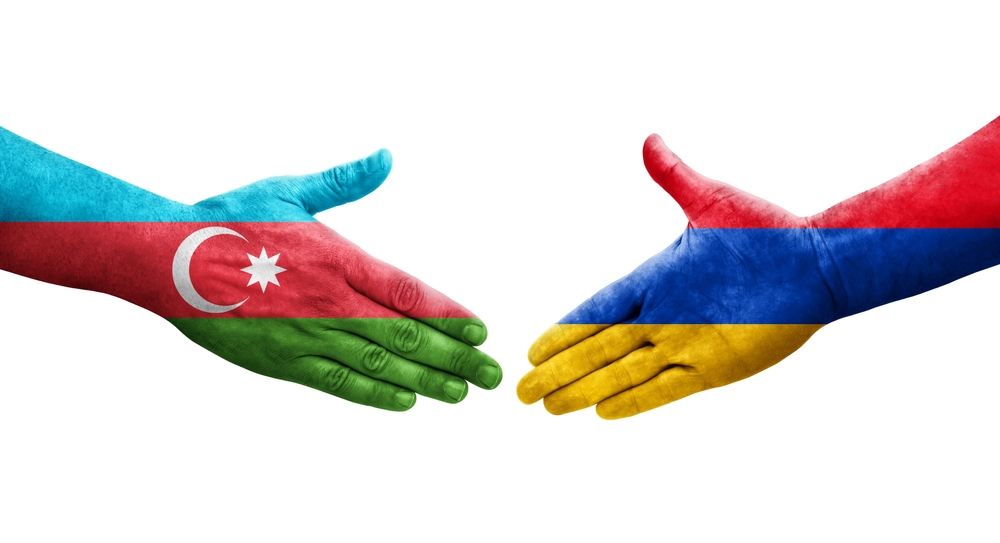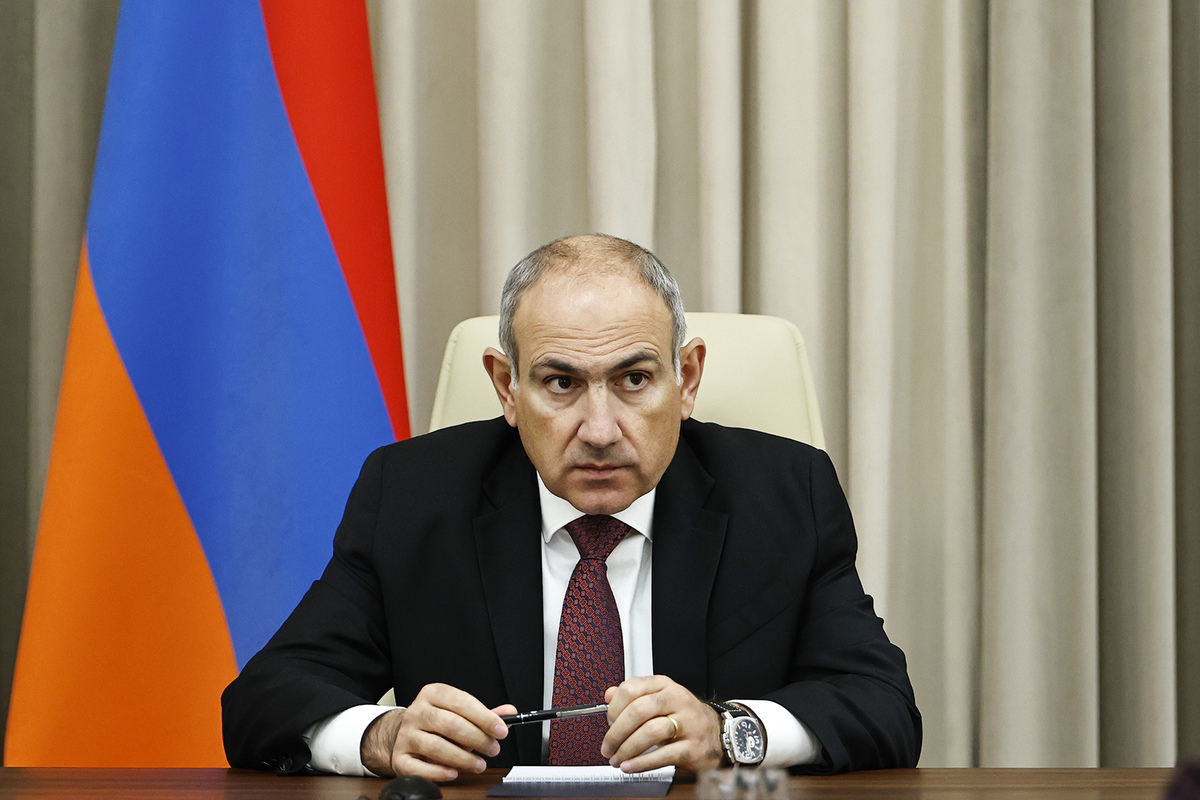'Attempt to break iron curtain' — Armenian experts on visit to Baku
First visit of Armenian experts to Baku
On 21–22 November, five Armenian experts visited Azerbaijan as part of a reciprocal trip. A month earlier, in October, Azerbaijani experts had visited Yerevan.
The initiative, already dubbed the Bridge of Peace, brings together civil society representatives from both countries to discuss the same issues tackled by Armenian and Azerbaijani officials in political talks. Topics range from signing a peace agreement to reopening communication channels.
During a press conference in Yerevan, the Armenian participants said they had agreed with their Azerbaijani counterparts to continue working contacts and reciprocal visits.
In Baku, the Armenian group also met with Hikmet Hajiyev, assistant to the Azerbaijani president, to discuss the full range of issues concerning Armenian society, including the return of Armenian prisoners.
Naira Sultanyan, head of the Democracy Development Fund, said they had tried to address the issue within the logic of the peace process and explain “why solving this problem serves the interests of both sides.” While no tangible progress has yet been made, Hajiyev assured the group that “active negotiations” are ongoing.
Another participant in the Bridge of Peace initiative, Arega Kochinyan, noted that during the Soviet era Armenia and Azerbaijan managed relations through Moscow, and since the USSR’s collapse, their experience has been limited to war and conflict.
Kochinyan said that significant work remains to build an atmosphere of coexistence.
“Over the past 35 years, a kind of iron curtain has formed between Armenia and Azerbaijan. This initiative has overcome it twice already. Is that enough to say the iron curtain is falling? No. But it is clearly a step in that direction,” he said.
Armenian experts Areg Kochinyan, Boris Navasardyan, Naira Sultanyan, Narek Minasyan, and Samvel Meliksetyan visited Baku, where they met Azerbaijani counterparts Farhad Mamedov, Rusif Guseynov, Kyamala Mamedova, Ramil Iskanderli, and Fuad Abdullaev.
The discussions focused on the dynamics of the peace process between Azerbaijan and Armenia, the role of civil society in promoting dialogue, and prospects for joint projects. Reports indicate that the parties agreed to intensify cooperation in the media sector, establish direct contacts between expert groups, and further involve civil society in the peace process.
What did the Armenian participants of the Bridge of Peace initiative say about their visit to Baku?
- Trump Route: Western illusion or turning point in South Caucasus?
- ‘If we look back, Azerbaijan isn’t on the map’: Armenian response to Aliyev’s remarks
- “US backs both Armenia and Azerbaijan”: view from Yerevan
‘Polite refusal’: Armenian experts intended to meet Armenian prisoners
A couple of weeks before the visit, one of the initiative’s participants, Boris Navasardyan, told Azatutyun (Radio Free Europe/Radio Liberty) that the Armenian experts wanted to meet their compatriots held in Azerbaijani prisons. He said they had discussed this with their Azerbaijani colleagues in Yerevan and emphasized that the visit to Baku would reveal whether their request would be granted.
“If this item wasn’t included in the programme, it means we were refused. We were offered a specific visit programme. We commented on it because the visit didn’t include a meeting, although we expressed this wish. This is what I call a polite refusal,” Navasardyan said at a press conference.
However, he noted that the group’s priority was not the prison visit itself, but making progress on the issue of the prisoners’ return:
“The issue is being discussed. It may receive some resolution. When, how, and in what form that will happen, we will likely learn in the near future.”
Aliyev’s aide sent a message to Armenian society: ‘The conflict is over‘
According to Areg Kochinyan, Azerbaijan’s presidential aide Hikmet Hajiyev asked that the following messages be conveyed to Armenian society:
- “The war is over; for Azerbaijan, there is no more war.”
- “The Armenian-Azerbaijani conflict has ended.”
- “Azerbaijan wants to move from the current state of ‘no-war’ to peace and build a comprehensive, long-term peace with Armenia.”
- “Azerbaijan has no territorial claims against Armenia.”
Armenian journalists responded with questions: “How should we interpret references from Baku to ‘Western Azerbaijan,’ and why do Azerbaijanis continue to call the transit route through Armenia the ‘Zangezur corridor’?”
In Baku, “Western Azerbaijan” is used to refer to almost the entire territory of Armenia, which Armenian society sees as a territorial claim.
The “Zangezur corridor” refers to a road that would connect Azerbaijan with its exclave Nakhchivan through Armenian territory.
This road has meanwhile been dubbed the “Trump Route,” after the mediator who helped resolve the dispute. For several years, Yerevan and Baku could not reach a compromise. Azerbaijan insisted on having a “corridor,” while Armenian authorities were willing to unblock all roads but rejected the term “corridor,” which implies a loss of sovereign control over the territory.
On 8 August in Washington, the parties agreed that the road would remain under Armenia’s sovereign control, with the United States joining the process as a business partner in the unblocking effort.
The experts who visited Baku responded that talks in Baku about “Western Azerbaijan” are a “mirror demand” to Armenian statements on the return of Karabakh Armenians to their homes.
Regarding the “corridor,” they said that during meetings in Azerbaijan the term “Zangezur corridor” was not used. In particular, Hikmet Hajiyev referred to it as “a road passing through Armenia’s Syunik province.”
Armenian and Azerbaijani experts discussed prospects for implementing joint projects.
Participants in the initiative reported on this back in October, following the Yerevan meeting.
“The projects we discussed in Yerevan have, during our visit to Baku, essentially reached the final stage of discussion. In the near future, you will see the first steps toward their implementation,” said Areg Kochinyan, head of the Center for Security Policy Studies and political analyst, in response to a JAMnews question.
According to Boris Navasardyan, honorary president of the Yerevan Press Club, the following areas are under discussion:
- Involving experts in discussions and events across different formats.
- Working with the media to support the settlement process and prevent distortion of the facts.
- Expanding the “5+5” initiative format, which currently includes five representatives from each country.
Before traveling to Baku, he said that civil society representatives from Armenia and Azerbaijan planned to discuss the following issues:
- The rapid signing of a peace agreement.
- Accelerating the unblocking of regional communications.
- Joint economic projects.
- Contacts between residents of border areas, among other matters.
He now added that joint proposals have been developed on all these issues, which could, to some extent, be incorporated into the agenda of official negotiations.
When JAMnews asked whether these proposals had been presented in Baku, for example to Hikmet Hajiyev, Navasardyan replied:
“There is a clear sequence of steps. Not everything we plan needs to develop within the Bridge of Peace initiative. For example, at the end of November, the Yerevan and Baku Press Clubs will prepare several documents that present proposals for the media.”
He added that the documents would outline “how journalists should work to ensure nothing is hidden, while at the same time avoiding actions that could provoke tensions in society.”
How Bridge of Peace initiative started
Areg Kochinyan, head of the Center for Security Policy Studies and political analyst, said that the idea for the format came from him and his Azerbaijani colleague:
“In Armenia, I, and my colleague in Azerbaijan, approached the authorities. We said there was this idea: we want to organize bilateral visits and joint projects without intermediaries, without involving third countries or third parties. And we received support.”
Kochinyan emphasized that there are no topic restrictions at the meetings, and experts raise all issues that concern society:
“Of course, we consult with our capitals. But this in no way means that we represent an official position.”
The Armenian government provided the funds for a direct Yerevan–Baku–Yerevan flight
The Armenian government allocated around 17.5 million drams ($46,000) to organize charter flights between Yerevan and Baku. The justification for the expenditure stated that participation in the discussions would:
- Boost contacts between civil society representatives from Armenia and Azerbaijan.
- Develop mechanisms to strengthen trust between the societies of the two countries.
Areg Kochinyan emphasized that receiving state funding for the project obliges participants to make every effort:
“At the moment, this format is possible only thanks to government support. But our group has set itself the task of diversifying funding sources and support opportunities, so that all of this does not rely solely on the state budget.”
First visit of Armenian experts to Baku










